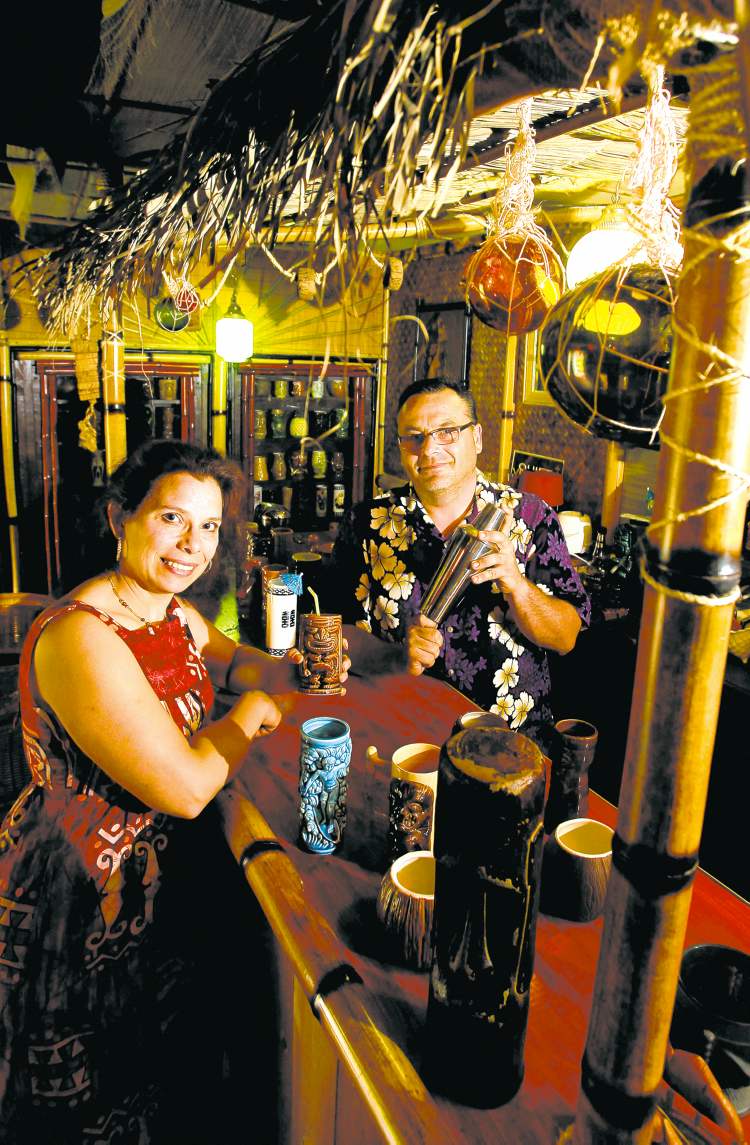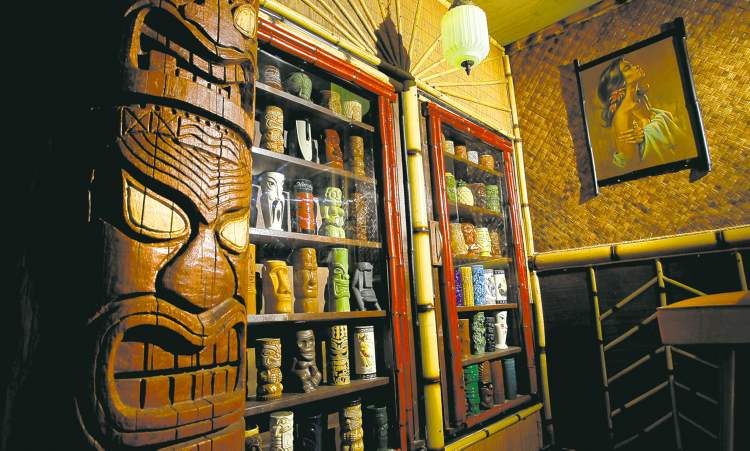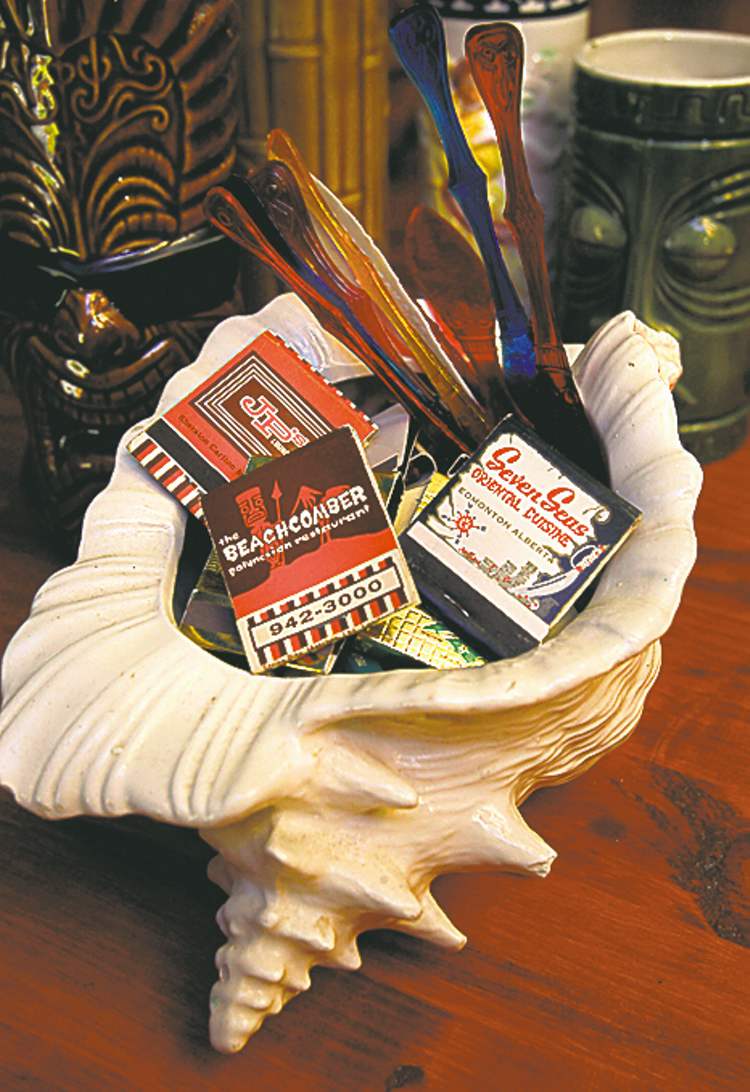Tiki your fancy: Polynesia meets the Prairies in couple’s corner of paradise
Advertisement
Read this article for free:
or
Already have an account? Log in here »
To continue reading, please subscribe:
Monthly Digital Subscription
$1 per week for 24 weeks*
- Enjoy unlimited reading on winnipegfreepress.com
- Read the E-Edition, our digital replica newspaper
- Access News Break, our award-winning app
- Play interactive puzzles
*Billed as $4.00 plus GST every four weeks. After 24 weeks, price increases to the regular rate of $19.00 plus GST every four weeks. Offer available to new and qualified returning subscribers only. Cancel any time.
Monthly Digital Subscription
$4.75/week*
- Enjoy unlimited reading on winnipegfreepress.com
- Read the E-Edition, our digital replica newspaper
- Access News Break, our award-winning app
- Play interactive puzzles
*Billed as $19 plus GST every four weeks. Cancel any time.
To continue reading, please subscribe:
Add Free Press access to your Brandon Sun subscription for only an additional
$1 for the first 4 weeks*
*Your next subscription payment will increase by $1.00 and you will be charged $16.99 plus GST for four weeks. After four weeks, your payment will increase to $23.99 plus GST every four weeks.
Read unlimited articles for free today:
or
Already have an account? Log in here »
Hey there, time traveller!
This article was published 06/07/2013 (4495 days ago), so information in it may no longer be current.
Blame it on Jack Lord.
Ron Kerr grew up in Snow Lake, a town 685 kilometres north of Winnipeg and 6,100 km east of Waikiki Beach. For years, Kerr was made to hit the hay early on Friday nights so his parents could stay up and enjoy their favourite TV program, Hawaii Five-O, sans children.
Kerr distinctly remembers lying in bed, craning his ears to hear the Ventures’ rollicking title theme. “When I was a bit older, they let me stay up and join them,” says Kerr, who moved to Winnipeg in 1981. “For whatever reason, the whole tropical-vacation-escape feel of that show really appealed to me. That’s probably where this all started.”

“This,” is one of the most exhaustive collections of Tiki memorabilia this side of Easter Island. Through the years, Kerr has amassed so many mugs, masks and Moai statuettes that he and his wife, Lesley, recently converted their two-car garage into a spot-on Tiki lounge just so they could give the trove its full due.
“Before this we had everything in totes in the basement,” Lesley says, sporting an orange-and-black muumuu. “But it came to a point — because of the artistry of the mugs especially — that we wanted to have them on display. They weren’t happy in a box.”
Filmmaker and fellow Tiki collector Steven Ward was so wowed by the Kerrs’ attention to detail — yes, those are shrunken heads behind the bar; yes, that’s The Exotic Sounds of Martin Denny playing in the background — that the garage has a starring role in Ward’s soon-to-be-released Mai-tais, Toques and Tikis.
The documentary will begin airing on MTS Stories from Home later this summer. It focuses on Winnipeg lounge culture in the 1960s and ’70s — in particular, rum-soaked watering holes like the Beachcomber Polynesian Restaurant and Chan’s Moon Room Cabaret. (In December 2011, the Winnipeg Free Press ran a story about Ward’s then-fledgling project; Kerr — ask to see his Tiki tattoo — got in touch with the filmmaker after reading the piece.)
“Name your poison.”
Normally this writer refrains from imbibing on the job but this day is an exception. That’s because Kerr is behind the bar, throwing together a litre or three of Bahama Mamas — the exact sort of libation places like the Beachcomber were renowned for.
“One of the things I try to do is serve cocktails in the same kind of stemware they would have been served in originally,” Kerr says, handing a visitor a hurricane glass bearing the stamp Don Ho’s Polynesian Palace.

Kerr, who only recalls visiting the Beachcomber one time, in the early ’90s, took up his hobby innocently enough. About 15 years ago the home-based paralegal purchased a matching pair of carved mugs for 50 cents apiece at a neighbourhood garage sale — only because he thought they’d look sharp on his mantle. A couple of weeks later, he spotted a similar set at a second-hand store.
Well, you know what they say: two of something is a conversation piece but four is a collection. Those relics have since been joined by hundreds of other South Seas-inspired whatzits, including menus, swizzle sticks, coasters, postcards, ashtrays — even the odd blowfish.
“When you find these things you know they had to come all the way from Hawaii or wherever, because there were never any Tiki outlets around here,” says Lesley, who has since joined her hubbie in his quest. “Somebody had to travel there, buy it, bring it back and then hold onto it for years. To us, it’s like finding lost treasure when we come across this stuff.”
Even their sons, ages 10 and 13, contribute to the cause when asked. “They came in handy when they were younger — and shorter — because they’d see stuff on bottom shelves that we would have missed altogether,” Lesley goes on, noting her eldest also has a penchant for Hawaiian-style shirts — the same type his dad has close to 50 of.
The garage transformation is Kerr’s fourth attempt at constructing a Tiki bar. Three outdoor projects — not counting a fruit bar he built for Son No. 2’s seventh birthday — preceded it. But each of those was seasonal and none was large enough to show things off properly. So in January, Kerr logged onto a collectors’ website called Tiki Central (www.tikicentral.com). There he read about people who had transformed a portion of their property into the second coming of Trader Vic’s.
“Nobody wants to copy anyone else’s design but it is a great place to get ideas,” Kerr says. “The thing is, a lot of the bars they show are in the States where it’s way easier — and cheaper — to get materials.”
Netting bamboo wasn’t a problem; Kerr bought his at Rona and Windsor Plywood. (After bringing it home, he burnt it, clear-coated it, split it and hung it, in that order.) The woven hala paper on the walls was a different story; it had to be imported from the Philippines and cost $240 a roll. Comparatively, the grass mats that make up parts of the ceiling were a steal; Lesley tripped over dozens at her neighbourhood Dollarama. Start to finish, the bar — dubbed Tiki Joe’s Voodoo Lounge — took just under five months to complete.

In June, an invitation-only party for people who appear in Ward’s documentary served as the undertaking’s grand unveiling. Since then, family members and neighbours have also been invited over for Blue Hawaiis and Cuba Libres. Reactions have been uniform. “As soon as they enter, they sort of stand in the doorway in awe,” Kerr says, pausing to ask Lesley if there’s any more pineapple juice in the fridge. “Our goal is to make it inviting. We want people who come here to never want to leave.'”
Funny enough, the Kerrs have never travelled to the land of sun and surf. In fact, Lesley has yet to set foot on a commercial airliner.
“But that’s OK,” she says. “In here I get the feeling of warmth and beaches and of being away. In a city where there’s seven months of winter, it’s great to have a little taste of the tropics in my own backyard.”
david.sanderson@freepress.mb.ca
Dave Sanderson was born in Regina but please, don’t hold that against him.
Our newsroom depends on a growing audience of readers to power our journalism. If you are not a paid reader, please consider becoming a subscriber.
Our newsroom depends on its audience of readers to power our journalism. Thank you for your support.
History
Updated on Saturday, July 6, 2013 9:37 AM CDT: Adds slideshow

